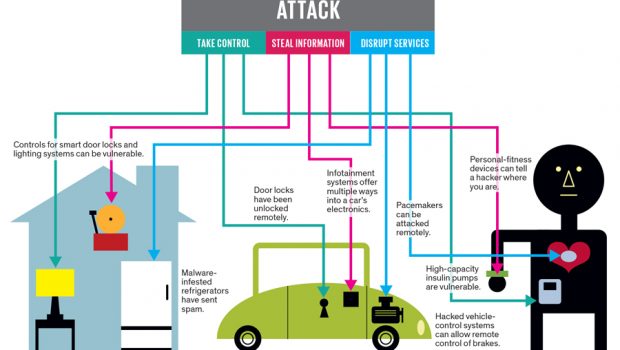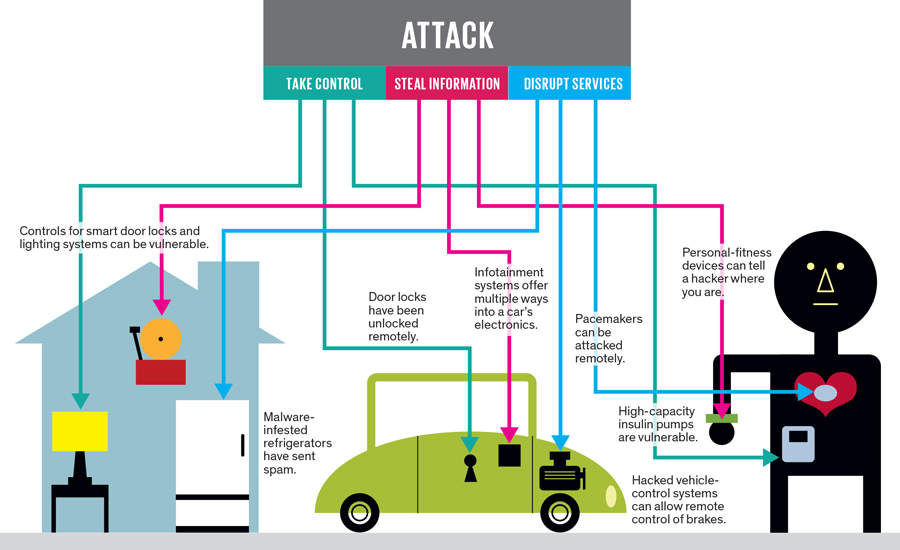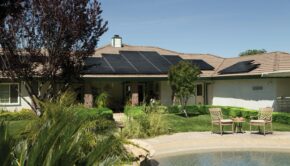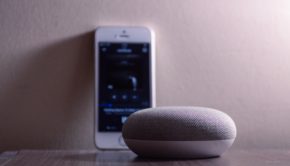The Downside of Having a Smart Home
Living in a home with smart home technology provides you with convenient features from a central location. It is true that there are several advantages of having a smart home, but there are a few disadvantages of having a smart home. Here are a few things to consider before you invest in smart home technology.
Smart Home Technology is Expensive
Smart home technology ranges from $2,500 to millions of dollars. A $2,500 installation package includes basic technology such as a thermostat, burglar alarm, door locks and outdoor lighting. In addition to the $2,500 installation fee, you can expect to spend approximately $50 each month on the technology to control the smart home features.
Higher priced smart home technology controls televisions, home theaters, entertainment systems, swimming pools, saunas, hot tubs, HVAC systems, shades and laser lights. The cost of these high-quality features exceeds the budgets of the average homeowner.
This expensive upgrade to a home might be worth the costs if the technology yields significant energy savings. However, the average energy savings for smart homes is estimated to be about $100 per year.
Steep Learning Curve
Learning how to operate smart home technology is not difficult if you are a tech-savvy individual. If your technology skills are not advanced, you will have to take time to learn how to use the technology. This may require spending a significant amount of time consulting instruction manuals that teach you how to properly use the device.
Internet Reliability
Since smart homes rely heavily on the strength of your internet connectivity, your system could experience problems on days when your internet signals are weak. Poor internet strength could cause your technology to fail or stall.
Cyber Attacks
Smart home technology is vulnerable to hacking and cyber-attacks. If your smart home technology is hacked, strangers can remotely unlock your doors, change your thermostat, turn off your lights or disable your security alarm.
Another thing that can happen is hackers can get access to your personal files in the event of a cyber-attack. Not only is this dangerous for the residents of your home, but it can leave you vulnerable to identity theft. Smart home technology can compromise your family’s safety.
Invasion of Privacy
A ‘peeping tom’ can gain access to the video cameras in your home and you might not be aware. Not only do you have to worry about your privacy being invaded, you have to be concerned with compromised videos being posted on the internet.
Resale Problems
When you have a smart home, you may be excited about having all of your devices controlled by one system through your internet service. Due to the disadvantages mentioned in this article, smart home technology might cause prospective buyers to be apprehensive when it is time to sell your home.
Whether you are selling your home through traditional means or for sale by owner, smart home features may impact your sale. According to a recent article published by Business Insider, the smart home market continues to be in the early adopter phase.
Many prospective home buyers simply do not see the value of living in a smart home. In order to sell your smart home, you will have to educate potential buyers on the value of owning a home with this technology.
Security Flaws
Smart home technology is a relatively new type of technology. As a result, smart home technology can be flawed.
There are two primary reasons that this technology has flaws. Smart home technology does not have industry standards. Some smart home companies do not have extensive experience with information technology security.
Smart homes are being promoted as the future of home technology. However, the benefits of having a smart home may not outweigh the downside of ownership.
















